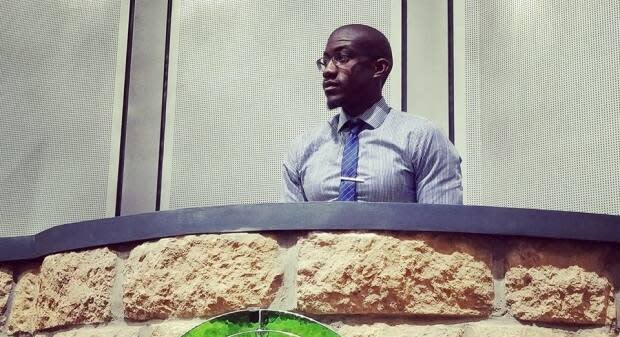Give BIPOC candidates ministry portfolios, not just a seat in the legislature, says B.C. expert
British Columbians have elected 19 non-white politicians to sit in Victoria, the same number elected in 2017 and while the status quo may look the same, one B.C. expert says it doesn't have to be.
In his first term, B.C. NDP Leader John Horgan's top cabinet ministers included Finance Minister Carole James, House Leader and Solicitor General Mike Farnworth, Health Minister Adrian Dix and Attorney General David Eby. While James self identifies as part Métis, the top politicians were overwhelmingly white and male.
Chuka Ejeckam, a research associate at the Canadian Centre for Policy Alternatives in B.C. who specializes in in equality and structural racism, says putting more Black, Indigenous and people of colour (BIPOC) in ministerial roles would have the benefit of putting people with lived racial experiences at the centre of policy-making decisions.
"We frequently hear that from elected officials who are white. They understand that they'll never understand and that only goes so far," said Ejeckam Tuesday on The Early Edition.

Not only do people with direct ties to underrepresented communities have deeper understanding of the issues those communities face, said Ejeckam, those ties would help inform policies that better address those issues.
"It certainly would require parties and governments, when they're in power, putting MLAs who aren't white into positions of power in the leading ministries and actually having decision-making power," said Ejeckam.
He said inclusive policy-making will require white MLAs to accept that BIPOC MLAs may propose ideas outside their comfort zone.
"If there's something that we hadn't considered, we have to understand that it's something [that] represents an experience we don't have," said Ejeckam.
Improve nation-to-nation relations
Last November, under Horgan, B.C. became the first government in North America to pass legislation to implement the United Nations Declaration on the Rights of Indigenous Peoples (UNDRIP), which Canada's Truth and Reconciliation Commission describes as the "framework for reconciliation."
The 46 articles of UNDRIP affirm the rights of Indigenous people to live in dignity, maintain their culture and participate in government decision-making.
B.C. Indigenous leaders are still waiting on an action plan from the B.C. NDP on how UNDRIP implementation will actually look in this province.
Ejeckham says having more Indigenous MLAs would likely increase the degree to which the government sees Indigenous nations as nations, as opposed to subjects.
But once the mail-in votes are counted in this provincial election, it is almost certain there will be 19 BIPOC MLAs in Victoria, the same as there was before the B.C. NDP called a snap election.
"It's positive, I suppose, that there aren't fewer," said Ejeckham.
Tap here to listen to Chuka Ejeckam's Oct. 27 interview on The Early Edition.

